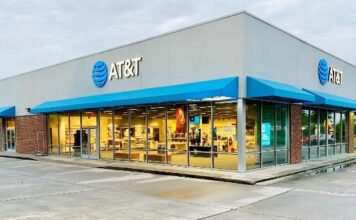 Masayoshi Son, chairman and CEO of SoftBank Group, has sent a strong message to T-Mobile, AT&T and Verizon that Sprint is not looking for a buyer to grow business in the U.S. telecom market by scrapping its plans for a merger with T-Mobile.
Masayoshi Son, chairman and CEO of SoftBank Group, has sent a strong message to T-Mobile, AT&T and Verizon that Sprint is not looking for a buyer to grow business in the U.S. telecom market by scrapping its plans for a merger with T-Mobile.
Sprint, which has nearly 54 million wireless subscribers in the U.S., is the foundation for SoftBank’s ambitious investment programs in the U.S.
Billionaire Masayoshi Son does not want to become the number two in a merger with T-Mobile. The enterprise valuation of Sprint, which has started its own revival, was also not acceptable to T-Mobile, a Deutsche Telekom-promoted company with more than 70 million customers.
Deutsche Telekom relies on T-Mobile for enhancing revenue and stabilizing its EBITDA. Hence giving up control of T-Mobile is not a viable option for the management of Deutsche Telekom. Both Sprint and T-Mobile were on the merger table in previous years as well.
The decision to stop talks for the merger between T-Mobile and Sprint will be a relief for telecom regulator FCC as well. If the merger happens, US will have three wireless operators: AT&T, Verizon and T-Mobile.
T-Mobile CEO John Legere and Sprint CEO Marcelo Claure will now continue to fight for wireless users in the U.S., one of the most competitive telecom markets in the world. When both Sprint and T-Mobile look for net addition of wireless customers, AT&T and Verizon are also diversifying their business to IoT and other areas to reduce pressure from voice and data revenue.
“We have been clear all along that a deal with anyone will have to result in superior long-term value for T-Mobile’s shareholders compared to our outstanding stand-alone performance and track record,” said John Legere, president and CEO of T-Mobile US.
T-Mobile, which is setting new milestone every quarter, wants to continue to drive the adoption of mobile data customers on its 4G network.
What’s next for Sprint?
SoftBank aims to increase its stake in Sprint through open market transactions or otherwise. It does not intend to increase its ownership of Sprint outstanding common stock to 85 percent or more as a result of these purchases.
“We are entering an era where billions of connected devices and sensors will come online in the US. Continuing to own a world class mobile network is central to our vision of ubiquitous connectivity. Sprint is a critical part of our plan to ensure that we can deliver our vision to American consumers and we are very confident in its future,” Masayoshi Son said.
Cable operator Altice USA struck a deal with Sprint that will allow the cable operator to sell wireless service using Sprint’s network, Bloomberg reported.
Sprint announced Altice will utilize Sprint’s network to provide mobile voice and data services to its customers. Sprint will leverage Altice broadband platform to accelerate the densification of its network.
Sprint will provide Altice with access to its MVNO model, allowing Altice to connect its network to the Sprint network and have control over the Altice mobile features, functionality, and customer experience.
Altice will leverage its network to support Sprint’s network densification efforts and establish a differentiated network operating model.
“Will be able to capitalize on Sprint’s vast mobile network, which fits well alongside Altice USA’s WiFi network, and leverage Altice’s global mobile experience to deliver greater value, more benefits and seamless connectivity for our U.S. customers,” said Altice USA Chairman and CEO Dexter Goei.
Sprint is working to significantly densify its network through the deployment of small cells and other solutions.
Sprint’s Densification and Optimization toolkit includes solutions from traditional macro towers to small cells including Sprint Magic Box, airpoles, strand mounts and repeaters. Sprint holds 204 MHz of spectrum and more than 160 MHz of 2.5 GHz in top 100 markets.
“As content and connectivity continue to converge, we believe this approach will be a model for future strategic arrangements across multiple industries including cable, tech and others,” said Sprint CEO Marcelo Claure.
Cable operators want wireless revenue
Altice USA is building a fiber-to-the-home (FTTH) network. Altice has nearly 4.9 million customers.
It acquired Cablevision last year to become the fourth-biggest U.S. cable operator. Altice hasn’t determined yet when it will enter the wireless market. Altice is a subsidiary of Altice NV, which is led by Patrick Drahi and offers cellular service in several countries, including France, Portugal and Israel.
Altice has more than 26 million mobile customers in countries including France, Portugal, Israel, and the Dominican Republic.
Altice plans to double its U.S. cable presence in the next five years after assembling the unit through $26 billion in acquisitions, including purchases of Cablevision Systems and Suddenlink.
The deal between Altice and Sprint marks the latest example of a U.S. cable operator entering the wireless business to compete with giants like Verizon Communications and AT&T. Comcast, a largest cable operator, started selling cellular service using Verizon’s network. Charter Communications, the No. 2 cable operator, plans to enter the wireless business next year.
Baburajan K





